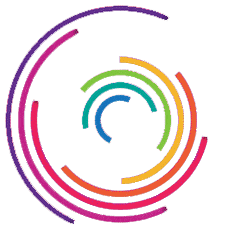
A subject of numerous research studies and theories, knowledge management often stays a mere theoretical concept when put into the business reality. Organizations only understand the real value of knowledge when they fail to meet their customers’ needs or implement important projects because of poor knowledge management.
Taking theoretical models from knowledge management researchers and adding our SharePoint consulting and development expertise, we came up with our proprietary approach to knowledge management that aims at maximizing business value of your corporate knowledge.
Knowledge types. Relying on the established classification, we distinguish 2 major types of knowledge:
How we help: We will assist you in stimulating employee-to-employee tacit knowledge transfer and deliver knowledge management tools to share and disseminate it while creating well-structured and easily accessible explicit knowledge storages and providing user-friendly knowledge sharing tools.
Knowledge item. We consider knowledge item (KI) as a basic particle of any knowledge. KI is a theoretical understanding or a practical skill in a specific area of practice.
How we help: We elaborate the optimal ways to find required KIs, rate, classify and update them, as well as to develop custom tools to connect employees with owners of tacit KIs.
Knowledge asset. We define knowledge asset (KA) as a single document or set of documents containing one or a few knowledge items. Widely recognized KAs are case studies, templates, researches, workshop materials, guidelines, etc.
How we help: We deliver solutions to securely store KAs, enable pervasive search across numerous KAs, continuously control relevance and improve the quality of corporate KAs.
We help you combine all the knowledge management elements into a holistic knowledge management solution in line with our framework. The solution aims at mapping, creating, distributing, augmenting and improving your corporate knowledge. The framework includes essential steps intended to expand your corporate knowledge and let you excel on a business level, as well as boost employees’ efficiency and get a deeper understanding of the market, customers, vendors, products and services.
We will assist you in creating a detailed map of your corporate knowledge through correlating specific knowledge items with available tacit and explicit knowledge across the enterprise. Knowledge mapping will allow you to define knowledge owners, current knowledge items as well as knowledge gaps.
We create a knowledge map to:
We will enable your organization to elicit required knowledge easier and faster, by relying on a well-structured knowledge map and with the help of the following:
Our knowledge management consultants will provide you with optimal tools to turn identified tacit knowledge into explicit and make it available throughout the company by taking advantage of:
We will help you stimulate dynamic knowledge dissemination across different departments and branches via pull and push modes.
You can distribute externalized and classified knowledge in the pull mode with:
We will create hands-on tools to ensure knowledge dissemination in the push mode and stimulate the use of the following channels:
Our knowledge management solution will let you attend to corporate knowledge assets and:
We created our knowledge management framework to help our customers solve the following business challenges with tailored knowledge management tools:
Overlooked business opportunities. The lack of relevant knowledge and competencies leads to lost customers, missed business opportunities and failed projects. A custom knowledge management solution will help you continuously improve your corporate knowledge and bring positive changes to your relationship with customers, correct the course of your business activities and stimulate revenue growth.
Interrupted business processes. By encouraging tacit and explicit knowledge distribution, companies increase the number of knowledge owners, thus avoiding potential knowledge ruptures if key employees leave the company. A solid corporate memory will allow knowledge retrieval at any time without breaking business activities.
Inert working environment. By developing a knowledge-focused corporate culture supported with a knowledge management solution, companies can prevent knowledge from jamming and stagnation. A knowledge-friendly ambiance stimulates employees to use corporate knowledge willingly and actively, thus perform better and show positive results.
Lack of innovative drive. Working in companies with a well-developed knowledge culture, employees are more inclined to share their unique knowledge and come up with non-trivial ideas. This helps organizations to solve complex tasks and find non-standard solutions to tangled business issues.
We’d love to stay in touch. Describe the digital challenge you’ve faced, and we’ll get back to you with a solution we can offer.